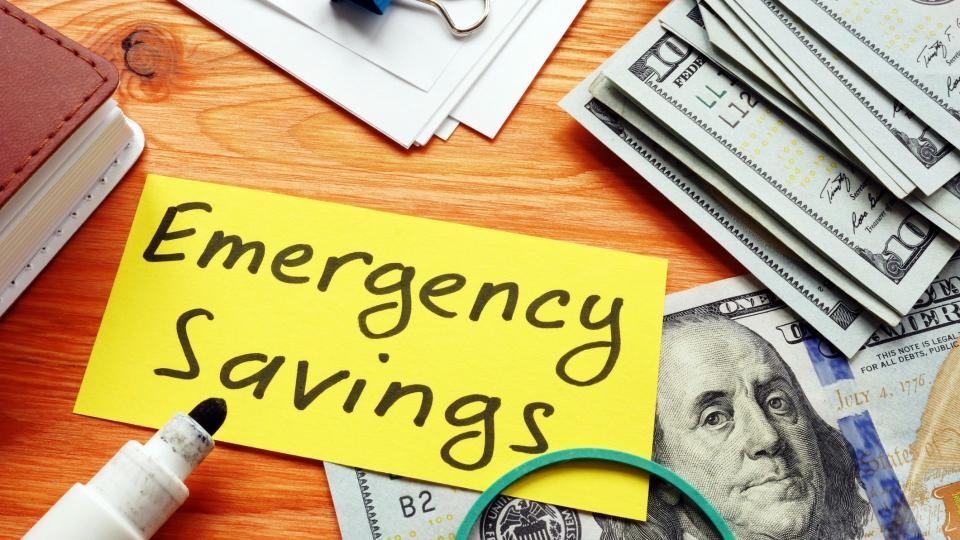How Much Cash Should You Have Stashed in Case Your House Is Robbed?

Your home is your sanctuary, so you hope it will never be violated with a break in, but unfortunately it could happen. This would be traumatizing on many levels, including losing your sense of security and causing your finances to take a hit.
Have Any $200 Quarters Lying Around? It’s Worth Checking Your Spare Change
Advice: If Your Credit Score Is Under 740, Make These 4 Moves Now
In 2019, there were an estimated 1.12 million burglaries in the U.S., according to the latest data from the FBI. The average dollar loss per burglary offense was $2,661.
Hopefully, you will never be a victim of this type of crime; but, if you are, you want to be prepared with enough cash on hand to get through it.
Don’t Keep More Than $200 or So
“While keeping as much money as you want at home is legal, the American Property Casualty Insurance Association states that the standard limit for cash covered under a standard home insurance policy is $200,” said Lyle Solomon, principal attorney at Oak View Law Group in Rocklin, California. “Any amount over $200 lost, damaged or stolen in the home is considered a personal loss.”
Take Our Poll: Do You Have an Emergency Fund Established?
Consequently, in most cases, he said, you shouldn’t keep more than $200 to $300 cash in your home.
“If you need to store more than that,” he said, “you should get a fire safe and hide it somewhere in your home so that thieves won’t find it.”
Given this information, you might think it’s best to keep little to no cash in your home, but he said you do need some on hand to cover unexpected expenses.
Ben Waterman, co-founder of Strabo, agreed that it is generally unwise to store large sums of cash at home or keep a large percentage of your wealth in cash.
“The former represents a safety risk,” he said, “and the latter exposes you excessively to inflation.”
Where To Keep Your Extra Cash
In the event of a home invasion, he said, you’ll want to have enough cash stashed to live comfortably until you’ve received insurance money to cover your losses and taken steps to re-establish bank accounts whose cards were also stolen.
“It will also cause you a great deal of stress, and so you would ideally like to be in a position where near-term survival is not a pressing concern,” he said. “Beyond that, many investors like to keep cash reserves in order to make the most of distressed prices during market downturns. But this is more a case of investing strategy — which is subjective — than necessity.”
If you do decide to take the cash reserve route, he said two to three months of living expenses is enough for most people. He recommended keeping this money in a deposit account that’s easy to access.
Jaspreet Chawla, senior vice president of savings products at Navy Federal Credit Union, further stressed the importance of having savings on hand.
“It’s crucial that in emergency situations, including home burglary, individuals have enough of an emergency fund to remain financially secure until they’re able to get back on their feet,” she said. “While the amount of money needed to maintain some level of financial security will vary depending on the given scenario, a general rule I advise our Navy Federal members would be to have three to six months’ worth of living expenses saved, to ensure that they don’t fall behind on rent and other living expenses.”
Separate Your Various Funds
She also recommended keeping your emergency fund separate from accounts used to pay standard bills and ensuring the funds are readily available in an emergency.
“This can help stop you from ‘borrowing’ from your emergency fund for non-essential items,” she said. “As you set up a new account, look for one that is interest bearing and allows for easy access without a withdrawal penalty, such as a savings account or a money market account.”
When your account is set up, she recommended treating your emergency fund like any other bill by scheduling regular automatic transfers to it.
“In the case of an emergency, you’ll have money set aside,” she said, “hopefully helping to maintain a sense of normalcy and financial stability.”
More From GOBankingRates
This article originally appeared on GOBankingRates.com: How Much Cash Should You Have Stashed in Case Your House Is Robbed?

 generic
generic 